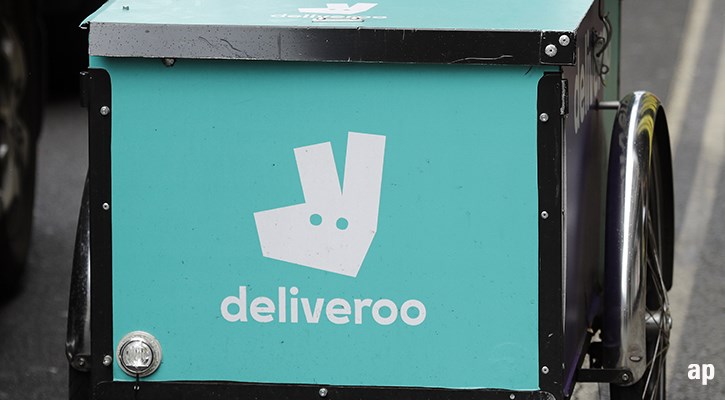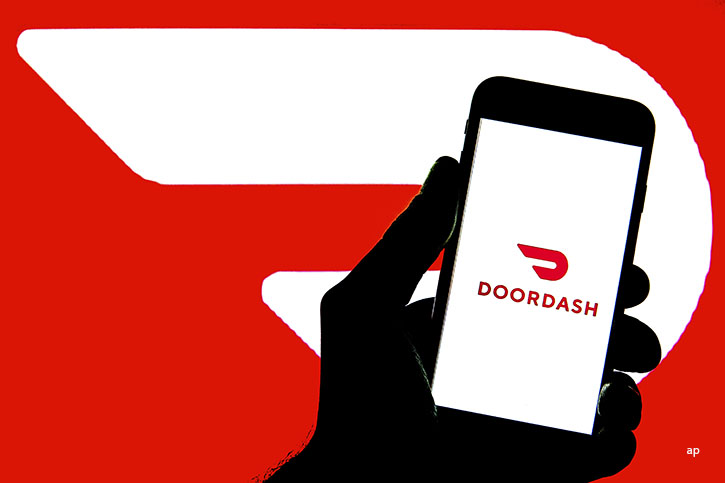
Food delivery firms were hot stocks during the many pandemic lockdowns but investors’ appetite for the companies has waned sharply in recent months.
In a market that wants profits and cash flows delivered in the here and now, their promise of “growth tomorrow” has gone cold. And the general lack of enthusiasm for anything that looks like tech has also dragged on share price performance this year. There have been some stomach-churning losses for investors in the last six months alone.
Investors could be forgiven for thinking these companies are all roughly similar because they do similar things: deliver food within the hour from your favourite joints.
But it's a dynamic sector and it's often hard to pin down real story amid the blizzard of numbers. Orders are soaring but share prices are tumbling. Revenue is rising but profits are hard to come by. So it's often difficult to know what the real story is: luckily Morningstar analysts have their favourites in the sector (of which more later).
We’ve rounded up the numbers for ease of comparison between the main players. What investors really want is some profit, or at least some sign that profitability is imminent. Deliveroo and Just Eat are just about to release full-year numbers and the market will be more interested in their 2022 forecasts than their 2021 performance.
Cheap Food, Cheap Shares?
Some stocks are nursing some serious share price falls this year, and we’re only seven weeks into 2022: in Germany, Delivery Hero is 53% lower since January 1. One-year returns aren't pretty across the board either.
But any signs that companies are managing to maintain their pandemic growth levels are greeted enthusiastically by investors. US firm Door Dash (DASH) saw a bounce in the share price when it presented some upbeat numbers to the market last week – in the most recent quarter (to the end of December 2021), orders were 35% higher than in the same period in 2021. Morningstar tech sector analyst Ali Mogharabi upgraded his fair value for the US company to $163 per share.
However, that came just a week after a “disappointing” set of numbers at Delivery Hero (DHER), which leads our analyst to forecast a fall in its fair value estimate from its current level of €116. Morningstar analyst Ioannis Pontikis also raised its Uncertainty Rating from “High” to “Very High” . This comes amid uncertainty over likely profitability, especially in relation to Spanish subsidiary Glovo. The market is rewarding upbeat forecasts and punishing downbeat ones heavily.
Just Eat Well Positioned?
In this space, Pontikis prefers Just Eat Takeaway (JET), which like Deliveroo and Delivery Hero has a 5-star rating, meaning its shares are significantly undervalued. And not just undervalued; it is currently trading at the biggest discount of any Morningstar rated stock.
Its brands include Just Eat and Takeaway, which operate in multiple European markets. But it also bought DoorDash rival GrubHub in 2020 for just over $7 billion (for comparison, DoorDash’s market cap is currently $33 billion).
Here, size matters, and Just Eat is expected to make its dominant position count. “Just Eat Takeaway is the market leader in more than 90% of the markets it operates in and is well positioned, in our opinion, to benefit from the structural trend of increasing digitisation of food delivery orders," says Pontikis.
"High margins, highly concentrated markets, sticky client/restaurant relationships, relatively low capital intensity, and a significant and untapped addressable market underpin Just Eat’s investment thesis.”
The shares have a fair value estimate of £106, but are currently trading at around £29 after a 25% fall so far this year. Just Eat releases full-year results on March 2, 2022, whereas rival Deliveroo reports numbers on March 17.
What's Next?
The pandemic gave food delivery companies a transformative opportunity. Many new consumers who tried their services are now using them more regularly, just as Robeco Consumer Trends manager Jack Neele predicted last year.
It's worth remembering that the sector is still relatively young, with three of the main companies floating after coronavirus was discovered: DoorDash in 2020, Deliveroo and Zomato in 2021. Just Eat and Takeaway merged in April 2020.
Many of the shares are significantly undervalued, according to Morningstar metrics, but the uncertainty rating for most is very high, which suggests analysts are very cautious about short-term valuations. In the meantime, cheap stocks may get even cheaper, rather than bouncing back to their fair values.
From a regulatory point of view, there is a lot of pressure too. In Europe there's been a push to improve delivery drivers' labour rights (an ESG consideration for would-be investors). Likewise, in Asia, the Chinese government has forced Meituan to lower the fees its charges restaurants for delivery.
Finally, it remains unclear if a decisive winner will emerge. M&A activity has already started, as companies in this highly competetive space jostle for market share. Whether the market follows the "winner takes all" trend of traditional technology is hard to say. Will a global leader emerge or will there just be regional champions in the US and Europe? The core figures absolutely come with a side order of uncertainty.
A Note on Methodology
We’ve also included Uber Eats for comparison because this is a rival to many companies in this sector, even though it’s mainly known as a taxi service. We’ve also expanded our horizons beyond Europe to look at India’s Zomato and China’s Meituan, although neither yet have Morningstar ratings. Likewise, China’s e-commerce giant Alibaba (BABA) owns Meituan rival Ele.me, which translates roughly as “Hungry Now?”
We have excluded same-day grocery deliveries, even though some of these companies are involved in this growing area too.
We have used company-reported revenue and profit figures. While companies present their figures differently, the overall picture looks similar: revenues are rising, but high costs mean the companies are loss making.
In Just Eat Takeaway’s case, this is pro-forma revenue and pro-forma adjusted EBITDA because of the acquisition of GrubHub and merger with Just Eat. For Deliveroo, this is adjusted EBITDA (earnings before interest, tax, depreciation and amortisation). Delivery Hero uses adjusted EBITDA. For DoorDash this is reported as a net loss after interest, taxes, depreciation and amortisation. Adjusted EBITDA includes one-off, irregular items from a company's earnings such as non-realised gains or losses or asset writedowns. These are often removed from the EBITDA figure and this allows a comparison of two accounting figures.
Pro-forma financial statements involve hypothetical questions - companies that have bought or taken over other firms during reporting periods have to look at different scenarios.
Financials are reported in local currency. Total orders include delivery orders, as well as market place orders.




























